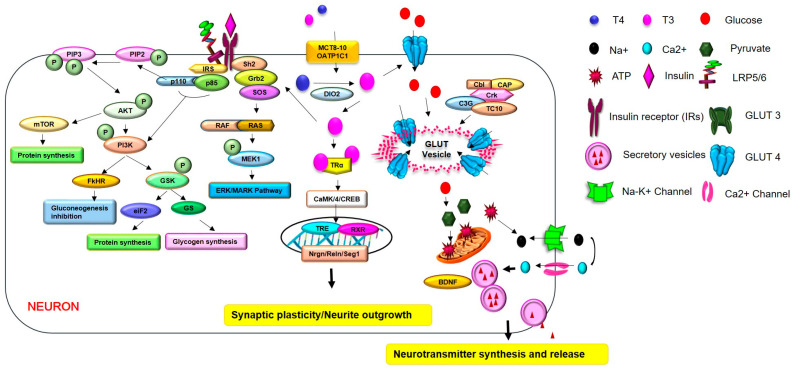Figure 2.
TH regulates glucose metabolism and the secretion of neurotransmitters in hypothyroidism. TH controls glucose uptake and insulin sensitivity by maintaining the expression of glucose transporters such as glucose transporter (GLUT) in CNS cells. TH prevents the cell death process and promotes neurite outgrowth and synaptic plasticity through several genes, such as the Nrgn, Reln and Srg1 genes, and through the CaMK/4/CREB signaling in neuron. TH modulates the expression of neurotransmitters, including dopamine, glutamate, GABA, and BDNF, through several kinds of signaling, and can ultimately control brain functions. Additionally, TH increases the activation of PI3K/Akt signaling, and GSK3β signaling is related to the enhancement of insulin sensitivity. TH boosts the expression of BDNF, leading to the activation of PI3K/Akt signaling, which is involved in cognitive function. Finally, the improvement of insulin sensitivity leads to the enhancement of cognitive function. In hypothyroidism, reduced levels of TH lead to impaired synaptic plasticity, cognitive deficit, abnormal neurotransmitter release, impaired neurite outgrowth, and insulin resistance.

